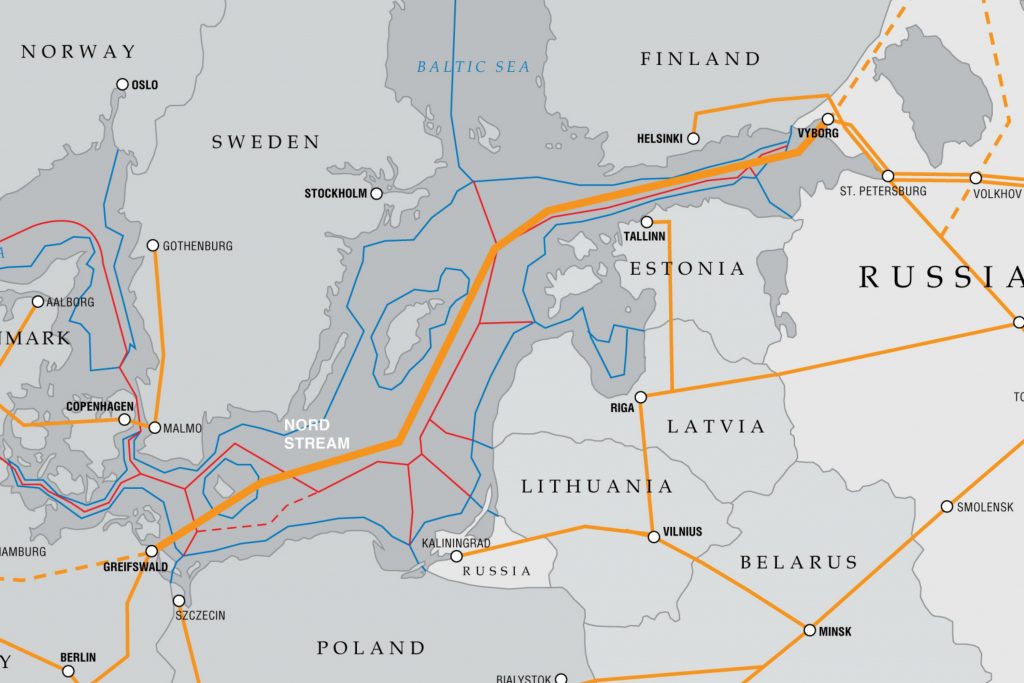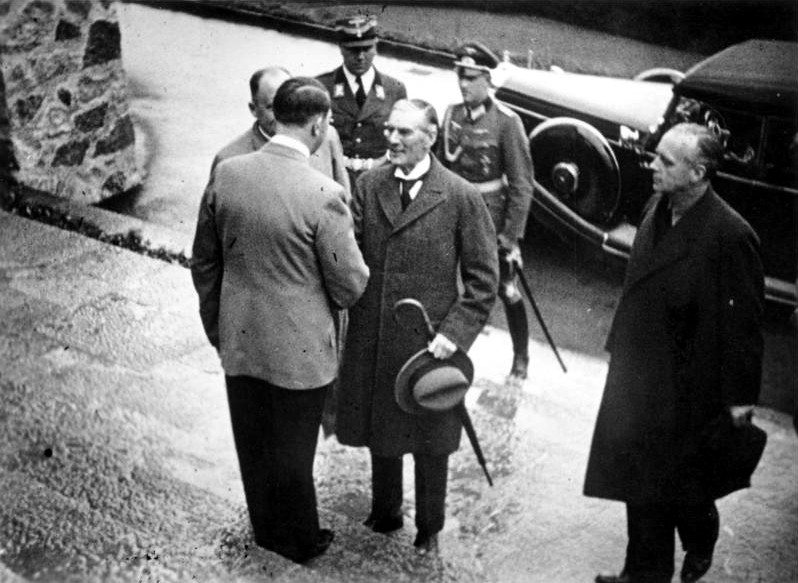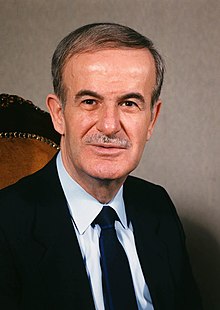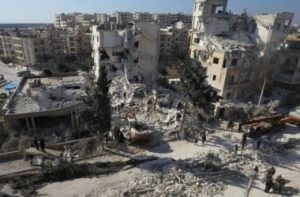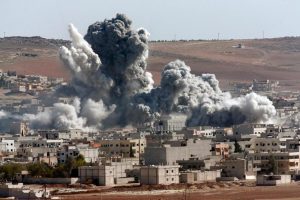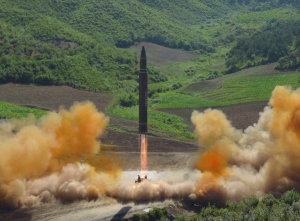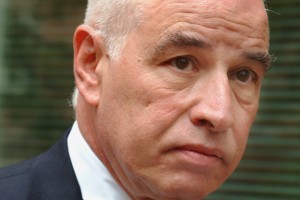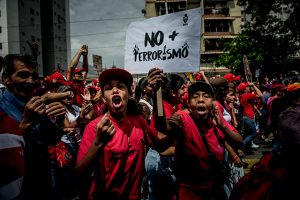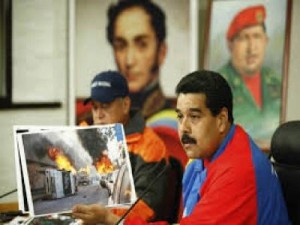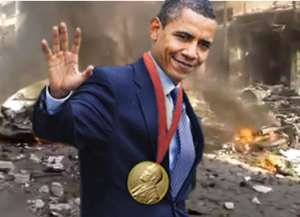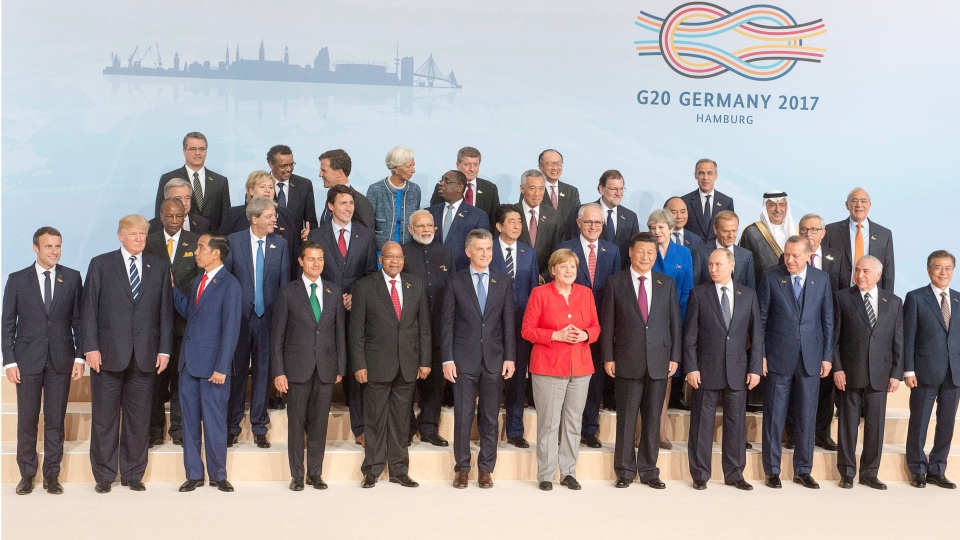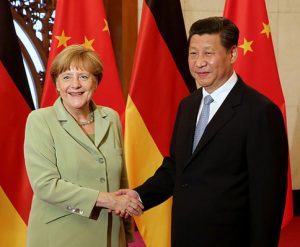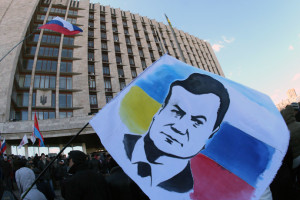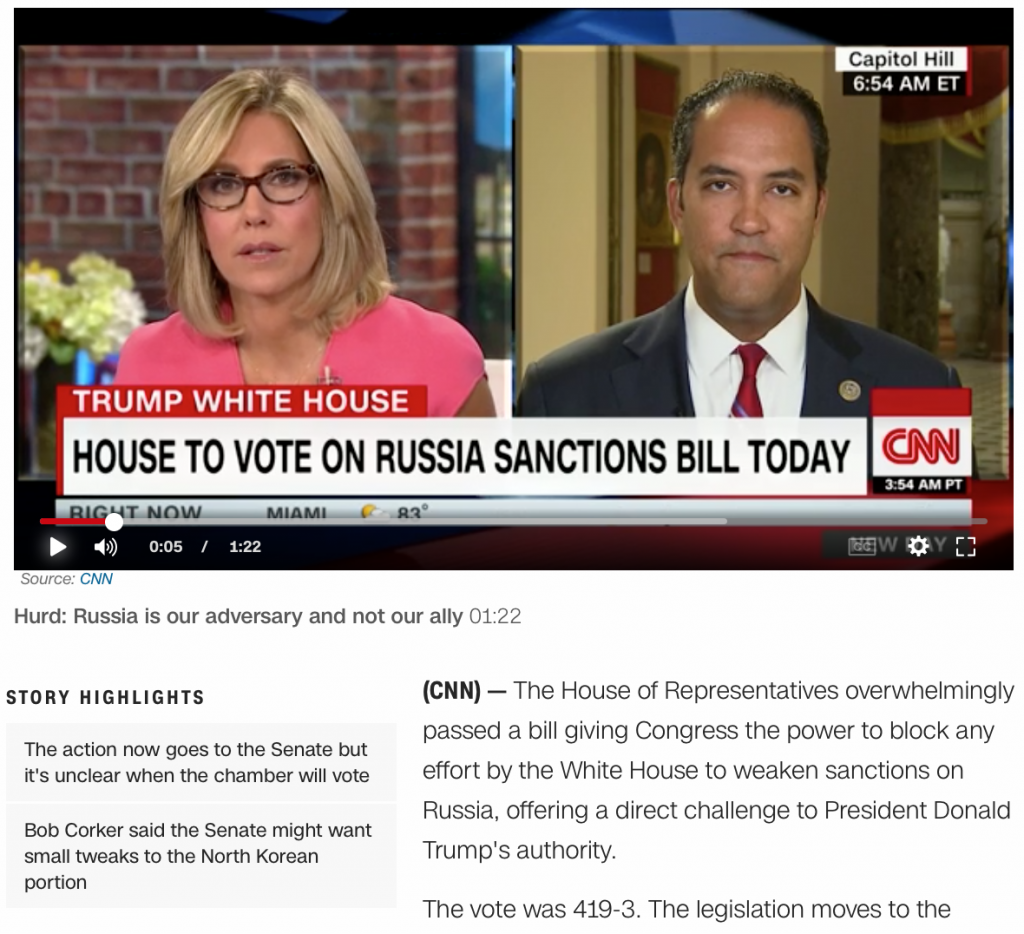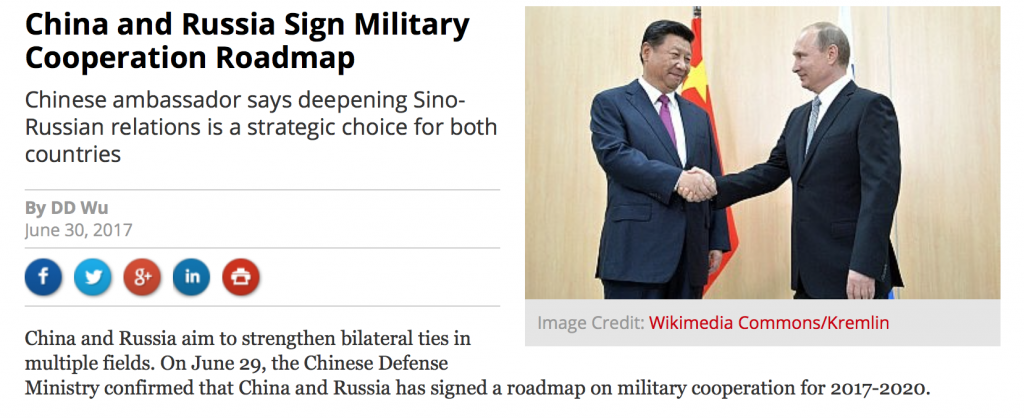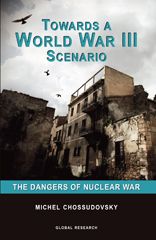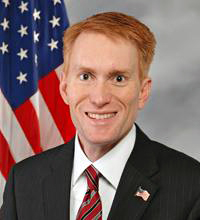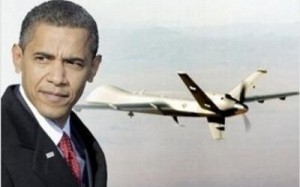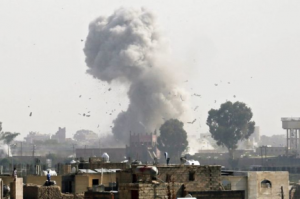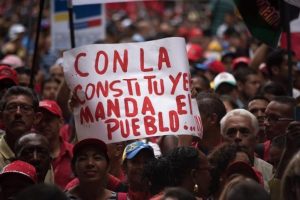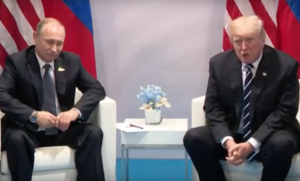Featured image: A photo of a massive Antofagasta open pit copper mine in Chile. The tiny black dots are the massive ore trucks (approximating the size of a two story house) that are used to bring the sulfide ore to the surface where it is first ground up into fine powder in a processing plant, thus eventually exposing all of the previously unexposed toxic metallic sulfides to oxygen and water and thus, inevitably, leading to the production of sulfuric acid which then poisons everything downstream. (Also note the typical residue of toxic aerosolized chemtrails that have been recently sprayed in the sky above the Chilean desert.) (Source: D. Gary G Kohls)
“ALL tailings “ponds” are problems. If they don’t breach and spill massive amounts of toxic sludge into the environment like at Mount Polley, they leach that contamination slowly, poisoning the waters and lands around them.”
http://canadians.org/blog/update-mount-polley-mine-disaster-imperial-metals-and-government-focus-covering-instead
“It is difficult to get a man to understand something, when his salary depends upon his not understanding it!” – Upton Sinclair, anti-fascist, anti-imperialist American author (1935)
“I am quite sure that PolyMet supporter, Minnesota Congressman Rick Nolan, would be as reluctant to push for a copper/nickel/sulfide mine near his home in Crosby, MN (whch is far away from the PolyMet project) as Wisconsin Governor Scott Walker would be if there were plans to build a stinking and ground water polluting mega-CAFO (Concentrated Animal Feeding Operation) hog farm near his home in Wauwatosa, WI – instead of in northern Wisconsin’s Bayfield County, where the Walker administration has been enabling such an operation.”
“There are a lot of under-employed iron range working class folks who naturally know that they will periodically experience the inevitable bust part of the boom-and-bust cycles that invariably happen in mining country, whether that economy depends on iron, taconite, copper, gold, coal, oil, uranium, or whatever. These workers are at the mercy of the mythical ‘invisible hand of the markets’ that are orchestrated by heartless, exploitive corporations that are by nature, selfish predatory businesses whose public relations propaganda firms and cunning lawyers lie when they claim to be ‘job creators’ that are interested in the common good. It is understandable that desperate people – especially the under-employed – do desperate things to survive; and economic instability naturally makes folks desperate. That needs to be understood.
“So it is natural for our iron range friends and neighbors further up north to want to believe that some entity will rescue them from the bust cycles. What also must be understood are the motivations of politicians from either major political party who will do whatever is necessary to obtain iron range votes in upcoming elections – or, in the case of coal country and Donald Trump, to falsely promise to bring back coal mining jobs. But resorting to unwise choices that desperate people can make, such decisions usually don’t work – like high-stakes casino gambling, investing in Ponzi scheme scams or voting for sociopathic, lying candidates who are controlled by Big Business. It is hard for anybody to be totally rational when confronted by hard economic choices.
“PolyMet and Twin Metals are the junior Canadian penny stock companies that are actually front groups for the major Swiss and Chilean parent mining corporations Glencore and Antofagasta. They have been propagandizing folks that are married to the iron range industries, to do what is not in the long-term best interest of their precious habitat, without wanting to understand the major downsides for the consequences of downstream communities. Those realities, which are taboo subjects for every corporate-controlled media outlet that depends on industry advertising, need to be exposed.
“And the biggest lie that must be exposed is the claim that modern copper/nickel sulfide (sulfuric acid-producing) mining technology – with its eternally toxic and highly polluting tailings lagoons can be done safely and cheaply, when the historical record tells us that safe copper/nickel/sulfide mining has never been done safely in the history of the world.”
For more information on those realities, see my column: “Rio Tinto: Still Polluting After All These Years”
“Every open-pit and underground sulfide mine in modern history – anywhere and everywhere in the world – has been toxic for the environment and deadly for its creatures, both animal and vegetable.” (Google ‘Copper Mining disasters across the world images’ to view hundreds of dramatic photos of such environmental catastrophes. And then google ‘Copper mining disasters across the world’ and read some of the 1,550,000 entries.)”
“We need to demand that we humans have the inalienable right to have access to affordable, healthy, uncontaminated water, food, soil, air, education, housing and health care and to be safe-guarded from greedy corporate predators whose job seems to be to extract our personal and communal wealth and resources wherever and whenever they can. The fate of our children, grandchildren and the sustainability of planet Earth depends on safe-guarding those rights and resources.”
“Slavery is the legal fiction that a person is property. Corporate personhood is the legal fiction that property is a person.” – Anonymous
In 2010 the pro-corporate 5/4 United States Supreme Court decided, in the Citizens United vs. Federal Election Commission ruling that favored multimillionaire businessmen and their multinational corporations by making it easier for them to steal US elections by allowing unlimited, anonymous monetary contributions to political campaigns, political action groups and the many politicians who were then beholden to their “generous” corporate paymasters.
This ruling, called by many fair-minded observers as the “worst Supreme Court decision of the past century”, has emboldened the already powerful and corruptible corporations – that already have dominion over the economy and the media – to now also be able to thoroughly bribe any number of politicians to do their will and thus more effectively influence voters and obtain favorable legislation through multi-million dollar ad campaigns, campaigns that can’t be effectively countered by small contributions from average voters – who do not have unlimited financial resources.
The US Supreme Court has thus made legal the absurd notion that inanimate paper corporations like the penny stock and major mining companies mentioned in the sub-title above, should have the same privileges – but not the same responsibilities – as living humans, including exploitable miners whose lives and health have historically been adversely affected by the hazardous conditions in the mines – with suboptimal health benefits from the mining corporations if and when their health is ruined. Those foreign mining companies are potential despoilers of northern Minnesota’s irreplaceable wetlands, rivers, aquifers, lakes and aboriginal land and water rights. These threatened-with-extinction treasures include Lake Superior, the BWCA and Canada’s Quetico Provincial Park.
After the pro-corporate Citizen’s United ruling came down, there was only a brief, insincere bit of outrage from the so-called liberal wing (Democrats) of our essentially “one-party system” (one-party, that is, when it comes to the Republican and Democratic Party’s pro-corporate and pro-militarist agendas).
What Should be the Punishment for Corporate Entities That Plunder, Rape and Pillage?
But if corporate America has acquired new privileges with the Citizen’s United decision, shouldn’t it also be subject to the responsibilities of personhood as well?
Any thinking person would agree that if any entity enjoys the rights and privileges of a human being, it should also bear the same responsibilities. Therefore, shouldn’t it also bear the same punishments as a real person when it hurts other people, commits crimes, poisons the water, fouls the air or rapes the land? And when the threat to do harm is monumental, shouldn’t the whole speculative enterprise be tabled indefinitely?

One of the rare victories against corporate giants occurred at Shapleigh, Maine, when that town managed to protect their water rights from the insatiable water-extracting corporate giant Nestle, whose many bottled water brands includes Arrowhead, Calistoga, Deer Park, Ice Mountain, Ozarka, Poland Spring, Pure Life, and Zephyrhills. (Note: Be sure to consider boycotting them in protest. See video and more information on this episode here.
Multinational corporate exploiters have no allegiance to any state, municipality or location when they try to extract water or minerals that never were ethically theirs to begin with. But when the mines have played out and the aquifers, lakes, rivers, wild rice beds and downstream water have been fully polluted, PolyMet/Glencore, Twin Metals/Antofagasta will be long gone, which is standard operating procedure for giant resource-extractors and polluters like Exxon/Mobil, Shell, Chevron, British Petroleum, Halliburton, Deep Water Horizon, Rio Tinto, Kennecott, BHP Billiton, Nestle, Coca-Cola, Perrier or any of the thousands of other multinational corporate intruders, exploiters and their lobbyists who dupe media consumers (voters) and attempt to bribe legislators and subtly threaten the major media (with advertising revenue losses) and various opinion-leaders (with job insecurity) into allowing the extraction of the nation’s resources without giving back anything other than the thin promise of temporary jobs and the high likelihood of a permanently toxic wasteland that will be irremediable at any price.
Cui bono? (Who Benefits?)
Q: Who do you think benefits from the pollution and the permanent toxic scars on Mother Earth when the de-watering process at the bottom of the copper/nickel mines is stopped (ie when the open pit or underground mine plays out)? And who do you think will suffer the consequences connected to the ubiquitous tailings “ponds”, when they turn into toxic lakes containing water with a pH approximating stomach acid (2.0) that also contain metallic pollutants incompatible with life?
A: Why, of course, the major benefactors will be faceless investors, corporate shareholders and CEOs living and doing business at corporate headquarters far from the polluting mine and toxic water. And those that are left behind will be the ones to suffer the consequences of the corporations refusing to clean up the messes they leave behind.
It should be emphasized that any big corporation only has allegiance to its fellow co-investors, its executives and management teams. Corporations have no legal responsibility to the people whose lives and health depend on the usability and sustainability of the land, soil, water, air and food that will be extracted, depleted or poisoned when the inevitable economic bust comes around.
Corporate shareholders and executives from the trans-national corporations that make up Big Mining, Big Coal, Big Oil, Big Pharma, Big Food, Big Agribusiness, Big Finance, etc are primarily motivated by profits and not the common good – which is the major difference between corrupted capitalism and altruistic socialism. Therefore they are not really concerned about the struggling, soon-to-be degraded communities that are left behind to fend for themselves when the mines and the water play out.
“Trust us, We’re the Experts”; “Toxic Sludge is Good for You”; “We’ll Clean up After Ourselves” — and Other Corporate Lies
Conscienceless mega-corporations that swoop down on naïve and unsuspecting people and local governmental bodies, usually can convince the target group to “trust us, because we’re the experts”. They somehow get their future victims to believe that at some time in the uncertain future they will un-poison (remediate) the usually poisoned environment that they secretly intend to leave behind. Under-employed or laid-off workers, understandably desperate for jobs, are easily fooled into believing the well-crafted disinformational corporate talking points – until it is too late and the mess is no longer the corporation’s problem, but the taxpayers. It’s an old con.
Promises made by copper/nickel mining companies during the courtship phase of obtaining permits for their mines have historically been broken with impunity when those corporations pull out, merge with other protected entities or file for bankruptcy. Silver-tongued CEOs and their shyster lawyers are very good at getting their “marks” up north all starry-eyed over a relatively small number of temporary jobs while discounting the huge risks of permanent dead zones that will likely be created from the poisonous chemicals left behind in the eternally toxic tailings ponds that will most likely be forgotten about – until the neglected earthen dams dissolve in the inevitable torrential rains that are happening with breath-taking regularity in our current climate change crisis.
Sociopathy and the DSM: The Common Denominator Linking Both Human and Corporate Criminals, Neither One of Which Should be Trusted
There are a number of common denominators that link human criminals and the multinational corporations that are fixtures in the list of wealthiest – and often most predatory – multinational corporations (like WalMart, McDonald’s, Coca-Cola, Boeing, Dow Chemical, Chevron, Exxon/Mobil, du Pont, British Petroleum, Halliburton, Monsanto, Glencore, Rio Tinto, BHP Billiton, Merck, Pfizer, Proctor and Gamble, Nestle, Perrier, Nike, Goldman Sachs, J P Morgan Chase, BankAmerica, etc, etc).

For one, the corporations are just as afraid of facing the music as were the Ponzi scheme criminals like Bernie Madoff, Enron’s Ken Lay, Worldcom’s Bernard Ebbers, HealthSouth’s Richard Scrushy, Bayou Hedge Fund’s Samuel Israel, and the many other sociopathic multimillionaire scam artists. Be assured that such entities will use any means necessary to evade or delay justice. Tragically, corporate sociopaths often have the US White House, the US Congress, the US Supreme Court, the FBI and the major media on their side. Neither human or corporate sociopaths show any genuine remorse for the human suffering that their actions cause.
There are checklist diagnoses for various personality disorders in the Diagnostic and Statistical Manuel (DSM) – the billing bible and diagnostic manual for psychiatrists and other physicians who make psychiatric diagnoses. (Note: the DSM interestingly enough, contains no statistics.) One of the 374 disorders that is listed in the 4th edition is antisocial/sociopathic personality disorder (code number 301.7), which identifies pathological liars, chronic cheaters, criminal types, thieves and killers whose cunning and lack of morals, ethics or consciences enable them to scam their “marks” and generally avoid getting caught or punished for their crimes and misdeeds.
These sociopaths (aka “psychopaths”) typically refuse to accept blame or acknowledge any responsibility for their actions. They typically lie – even under oath – to generate interest in their schemes, to avoid prosecution and then they typically try to run away if their schemes fail and they attract the law.
Many corporate entities meet the definition of antisocial personality disorder. When cornered with the truth about their criminality in a court of law, it is common practice for them to accept the court’s typical slap on the wrist and then refuse to admit their guilt. (Learn more about corporate sociopathy here, especially by watching the 2003 Canadian documentary titled The Corporation here.)
Below are seven diagnostic criteria that are used to diagnose antisocial (aka, sociopathic or psychopathic) personality disorder in human entities (it only takes three of the seven to make the diagnosis for a human person):
1) callous disregard for the feelings of other people
2) incapacity to maintain human relationships
3) reckless disregard for the safety of others
4) aggressiveness
5) deceitfulness (repeated lying and conning others for profit)
6) incapacity to experience guilt and
7) failure to conform to social norms and respect for the law.
Other common traits manifested by sociopaths include:
Lack of conscience
Lack of remorse for evils done to others
Indifference to the suffering of its victims
Rationalizes (makes excuses for) having hurt, mistreated or stolen from others
Willingness to exploit, seduce or manipulate others
No sign of delusional or irrational thinking
Cunning, clever
Usually above average intelligence
Always looking for ways to make money or achieve fame or notoriety
Willing to cause or contribute to the financial ruin of others
Untrustworthy
Cannot be trusted to adhere to conventional standards of morality.
Sociopaths do not have delusional thinking and are not considered mentally ill. They know exactly what they are doing. Sociopaths are, for all intents and purposes, totally sane but are also essentially incurable of their disorder. These individuals make up at least 4% of the US population, although certain professions tend to attract larger percentages of them (read The Sociopath Next Door: The Ruthless Versus the Rest of Us, by Martha Stout, PhD and buy it here.)
Actually the exact number of sociopaths – humans or their corporate counterparts – is not precisely known, but, any entity that lacks a moral compass, lacks empathy, lacks a conscience or lacks the ability to truly feel guilty should be suspect. Because most sociopaths believe that there is nothing wrong with them, they rarely ask for help, especially when the laws (or the markets, in the case of corporate sociopaths) are on their side. Sociopaths never truly try to change. Both types are inveterate re-offenders.
If and when human sociopaths are court-ordered to submit to evaluation and “treatment”, they may feel forced to acquiesce to the order but typically will only pretend to change when the pressure is off and their unethical or criminal activities look doable again.
Academic psychologists tell us that attempts to rehabilitate full-fledged sociopaths are useless, but nonetheless, the typically seductive, charming, charismatic, silver-tongued “human” sociopath is often able to fool even the professional treatment team into thinking progress is being made in their “recovery”.
Similarly, sociopathic “inhuman” corporations don’t have much trouble seducing regulatory agencies, the media, the public and desperately underemployed workers by falsely promising jobs and a secret un-tested plan that supposedly prevent environmental catastrophes. Only when it is too late and the corporation has skipped town with the loot will all the painful realities be revealed.
How About Symbolically Tarring and Feathering Corporations When They Rape and Pillage?
Experienced psychologists tell us that sociopathic individuals that have committed crimes have to be locked up to protect society from being serially victimized.
So a number of questions need to be asked now that the Supreme Court of the United States (SCOTUS) has granted the privileges of personhood to corporations. Given the fact that human sociopaths need to be avoided, marginalized or even locked up because they are “cunning wolves in sheep’s clothing”, we need to ask what needs to be done with the corporations that also meet the criteria.
What needs to be done with the many conscienceless corporations that have a history of predatory lending, false advertising, over-charging, trying to achieve monopoly status, deceiving the public, lying, cheating, poisoning the water, fouling the air, raping the land or otherwise acting unethically?
Given the anti-constitutional Citizen’s United ruling granting personhood to inanimate corporations, shouldn’t they be dealt with just like their human counterparts when they deceive and hurt a lot of people or their habitat?
Shouldn’t long prison sentences be given to the CEOs, Boards of Director, corporate lawyers, PR firms and management teams? Shouldn’t there be confiscation of property or even corporate capital punishment in the case of egregious cases that involve mass deaths such as in the case of Merck’s Vioxx and Gardisil deaths and disabilities?
I hasten to add that I am against capital punishment for humans, but any person with more than a double digit IQ knows that corporations are not really human, despite what the Supreme Court said in 2010. Corporations don’t bleed and don’t cry out in fear or pain during the execution process, although their executives may plead for mercy while shedding insincere tears as their power, wealth and privilege is stripped from them. Capital punishment for corporations, contrary to the data on capital punishment for humans, would likely prevent a lot of future criminal corporate behaviors.
I have wondered about the effectiveness of the old non-lethal punishment of hot tarring certain criminals, feathering them and then driving them out of town on a rail if he was caught, tried and convicted of a criminal deed.
I’ll bet that that humiliating punishments worked pretty well back in the early days of our nation’s history, and I would bet symbolically tarring and feathering a guilty corporation would work again as a deterrent to certain anti-democratic, tyrannical policies in these modern times. The threat of being humiliated in public is a powerful motivating factor, even for sociopaths.
What Should be Done With Corporate Rapists?
What about the crime of rape as applied to corporations? Rape has several dictionary definitions:
1) Any violent seizure or hostile action against a weaker opponent;
2) to rob or plunder;
3) the act of seizing and carrying off by force;
4) the crime of having forcible sexual intercourse without consent.
Corporations that rape, plunder, pollute or poison Mother Earth’s non-renewable resources or ruthlessly plan hostile takeovers, mergers or acquisitions against weaker competitors meet some of the above definitions for rape. Most of us would agree that any just society should punish corporate rapists at least as severely as it punishes the human kind.
What about the lethal poisons that thousands of unregulated chemical and mining corporations knowingly discharge into the water, air and soil of Mother Earth? Shouldn’t their acts of desecration be regarded as rape, assault and battery, reckless endangerment or premeditated ecocide? Shouldn’t we try to do everything we can to prevent inanimate entities from doing their dirt work?
Shouldn’t we do everything to prevent corporations from poisoning those portions of the planet that are haven’t already been victimized by the hundreds of enlarging toxic dead zones in aquifers, wetlands, rivers, lakes, rivers and oceans that are all over the planet.
Similarly, there are enlarging dead zones in infant, childhood and adult human brains from the increasingly large numbers of cocktails that contain neurotoxic ingredients that are in most vaccines (like the mercury and aluminum in America’s infant, childhood and US military over-vaccination schedules) and from the many combinations of neurotoxic psychiatric drugs, none of which were ever adequately tested for either short-term or long-term safety?
What about the extractive mining companies that, with their poisonous explosives, blow the tops off mountains in Appalachia and all around the world (as was proposed for the Penokee Mountain range of northern Wisconsin a few years ago) in order to extract and export the non-renewable mineral resources beneath? Does it make sense to believe the officials and cunning lobbyists of the mining companies who will claim innocence when living things downwind or downstream are sickened or die off? Tarring and feathering might be too lenient for some environmental crimes.
Anybody with a trace of morality knows what groups are responsible for the toxic mine waste all over the planet that contaminates the previously pristine streams and aquifers that once provided safe and abundant drinking water, edible fish and a healthy natural environment for wildlife, wild rice and humans (especially for our suffering First Nation’s brothers and sisters that had their lands and livelihoods stolen from them by cruel white supremacists and their killing machines starting back in 1492).
Zero Tolerance for Corporate Predators and Polluters!
How many atrocities should any extractive mining industry be allowed before they are called out for the predators that they are? Shouldn’t corporate intruders be stopped before they despoil even one more aquifer, one more river, one more lake, one more mountain, one more ocean or one more planet? Shouldn’t politically-connected corporate rapists-of-the-earth be banned, arrested, tried and punished just like the human predators that relentlessly stalk their sexual prey? And shouldn’t there be generous monetary restitution to the victims of past corporate criminality? And shouldn’t that money come from the corporate coffers and investors rather than from the EPA and its dwindling SuperFund account.
What should be done with all those over-privileged executives and law-makers that are addicted to their wealth, prestige, gated communities, body guards, chauffeurs, trophy wives, corporate jets, vacation homes and quarterly bonuses, especially in a nation of under-privileged, discriminated against, drug-addicted, over-entertained, harshly-parented, harshly-punished, impoverished, poorly-housed, under-educated, over-diagnosed, over-drugged, over-vaccinated, over-fed and under-nourished humans that the privileged classes are exploiting?
Shouldn’t industrial-strength corporate thieves, liars and killers at least be treated the same as human thieves, liars and killers? Shouldn’t we be wary of untrustworthy corporations that have lied to us before, even as they spend millions of dollars on TV advertising, trying to pretend to be good corporate citizens?
We regularly intervene for society’s human addicts who need help overcoming their gambling or drug addictions when they are judged to be a danger to themselves or others. Shouldn’t there be interventions planned for these power and wealth addicts before they do any more damage to our sick planet or our progeny?
The answer, in a fair society, should be yes to all these questions, no matter how often the well-dressed corporate spokespersons try to convince us that their companies are “responsible citizens”. We star-struck celebrity-worshippers of Hollywood stars, multimillionaire professional sports figures, high profile corporations and their silver-tongued CEOs seem to sucker for that line again and again. But the stakes are higher this time. The survival of the planet and its living things is at stake.
Shouldn’t Cold-Blooded Corporations Suspected of Wrong-Doing be Judged Guilty Until Proven Innocent?
One wonders what should be the best approach for dealing with cold-blooded corporations. Rather than applying the standard American constitutional guarantee for human citizens (ie, to be judged innocent until proven guilty), shouldn’t we be judging homicidal non-human entities as guilty until proven innocent?
I like that notion. During the last decade of my medical career (during which I practiced as a holistic mental health caregiver), I often helped my patients gradually taper off of their addictive and brain-altering drugs. The patients that had been referred to me were psychologically traumatized patients that had – tragically – usually been falsely diagnosed with a variety of “mental illnesses of unknown etiology” but who were actually all victims of physical, sexual, emotional or spiritual abuse –usually in childhood. My advice to many of my traumatized patients was to not make the mistake of unconditionally forgiving their abusers (or respecting them if they were parents) until their victimizers had sincerely and contritely asked to be forgiven and therefore were deserving of respect, forgiveness, trust or loyalty.
Psychologically speaking, not obeying – and therefore also not respecting – one’s victimizers should be the norm in interpersonal relationships. Psychologically speaking, the existence of significant parental neglect or abuse in a family should be one of the exceptions to the 4th commandment (that commands children to honor their fathers and their mothers, even, presumable if they were cruel). Likewise, we should only do business with companies that have earned and truly deserve our trust and respect.
Being suspicious of sociopathic entities is an important strategy to follow if one is to protect oneself from being cheated, used or abused. Staying out of a sociopath’s grasp is the proper approach in interpersonal or business relationships, even if the person or corporation appears on the surface to be charming or honorable, for both traits can be easily faked. If the sociopath is in a high position of governmental authority, impeachment should be pursued if un-election is not feasible.
Staying clear of vipers, alligators, grizzly bears or anybody or anything that one suspects has no conscience makes good sense, since conscienceless entities are also likely to be liars, thieves and rapists and are thus fully capable of criminality if they think that they can get away with it.
Staying away from (and perhaps even boycotting) corporations that have behaved unethically in the past is a simple thing that any person can do to resist corporate criminality, but in our largely brainwashed, advertised-into-submission culture, not too many people recognize that they are being duped until it is too late.
Say Hello to Corporation-Friendly American Fascism

Benito Mussolini (Source: Wikimedia Commons)
The Italian dictator Benito Mussolini is said to have proclaimed that “fascism should rightly be called corporatism as it is a merger of state and corporate power:” He should know; he invented the term and the concept. Italy’s right-wing, anti-worker, union-busting corporations loved and supported him as much as most 1930s German corporations loved and supported Hitler and his anti-communist, anti-socialist, anti-union agendas.
Fascism is a right-wing, nationalistic, authoritarian, anti-democracy political ideology that rules with military discipline and enforces its laws with police state power and spy agencies. Fascism achieves and maintains its power by the use of a secretive national security apparatus (spying), aggressive propaganda, control of the media and suppression of trade unions. Therefore Big Businesses, notably the weapons industries and other war-related or police state industries thrive in fascist nations that also suppress unions and keep the wages of workers low.
Fascist nations commonly violate the human and civil rights of their own citizens as well as the rights of the nations that they invade and occupy. Fascist leaders try to unify the people by creating enemies, scapegoating them and then, usually via false flag operations, going to war against the targets.
Dissent is not tolerated in fascist nations. Elections are often rigged and the fascist nation’s dissidents are persecuted or imprisoned (sort of like Chelsea Manning, Edward Snowden, Julian Assange, et al have been treated in the US).
In fascist states there is oftentimes some sort of alliance, complicity or actual merger of church and state as well as the fostering of anti-intellectual/anti-scientific attitudes, thus appealing to the ignorant, uneducated or easily indoctrinated. And there is always an obsession with law and order.
Who can deny that there has been a rolling corporate, quasi-fascist coup d’etat that has gradually been overturning America’s one person/one vote democracy? America has all the marks of a plutocracy (anti-democratic rule by the wealthy privileged class) that prefers fascist politics and pro-corporate economics.
Who can deny that wealthy corporations and their plutocratic billionaires have inordinate control over the economy, foreign and domestic policy and both major political parties? And now these entities have their privatizing eyes on our water, our land, our breathable air, our educational system, our penal system, our postal service, our Social Security, our Medicare and even our food (as Bob Dylan sang in Union Sundown, “I can see the day comin’ when even your home garden is gonna be against the law”.).
Elections will continue, although the choice of candidates, the so-called “debates” (that only includes – in the US – the two major party candidates) and the value of small monetary donations will be increasingly meaningless. There will be fewer viable anti-establishment candidates for whom to cast votes, like Progressive Party candidate Fighting Bob LaFollette, Socialist Party candidate Eugene Debs, Democratic Party dissidents Eugene McCarthy and Paul Wellstone, or Green Party candidate Jill Stein or Democratic Socialist Party candidate like Bernie Sanders. The American dream (one that “you have to be asleep to believe in”, as George Carlin put it) appears to have vanished for everybody but the 1%. And we in the lower 99% have been asleep at the wheel as it was disappearing before our eyes.
Corporate Rights vs. Corporate Responsibilities
It is the greedy, under-regulated multinational corporations (and NOT “man”) that are poisoning the planet’s ecosystems as well as the bodies and brains of the inhabitants. It is nonhuman corporate entities (and NOT “man”) that have been causing the bulk of the economic, environmental and healthcare crises – including global climate changes and the over-vaccinating and over-medicating policies that benefit corporations while they poison the people and the land. And, because they rarely get accused, indicted or punished for their crimes, corporations are increasingly willing to keep on with their planetary rape, pillage and murder. And they show no signs of remorse.
The modus operandi of the new corporate “normal” these days seems to be: “grab everything you can steal or buy by any means necessary; enrich your single-minded CEOs, your boards of directors, your shareholders, spokespersons, lawyers, lobbyists, lapdog legislators, judges and law enforcement officials so that they are on your side; don’t get caught; hunker down in your gated communities with your chauffeurs and your bodyguards while the revolutionary riots are raging outside (preferably with poor white victims fighting against poor black victims rather than the guilty rich); buy up all the post-revolutionary distressed properties you can for pennies on the dollar, waiting for the economic rebound and the New World Order; and then let the devil take the hindmost.”
Wrist slaps seem to be the norm for the superrich and the corporations that are deemed too big to fail. In America, if there are any consequences for reckless or destructive business practices at all, these over-privileged ones usually get assessed affordable fines and no jail time, if they are punished at all.
Sometimes though, a corporation that is about to be brought to justice will move its headquarters or its operations to another state or nation, leaving their smelly and toxic messes to be cleaned up by somebody else, just as one would expect of a conscienceless sociopath.
We must identify and courageously name America’s domestic enemies (not just its foreign ones) even if they are corporations or members of the executive, legislative or judicial branches of government. Naming the evil that they do must be done in order to effectively confront evil.
Simultaneously, we need to demand that we humans have the inalienable right to have access to affordable, healthy, uncontaminated water, food, soil, air, education, housing, health care and to be safe-guarded from greedy corporate predators whose job seems to be to extract our personal wealth and our planet’s environmental resources wherever and whenever they can. The fate of our children, grandchildren and the sustainability of planet Earth depends on safe-guarding those rights and resources.
Essential steps for concerned citizens who value the pristine environment of the northern half of our state and its relatively uncontaminated water, food, soil and air is to:
1) educate ourselves thoroughly about the realities of corporate sociopathy;
2) be warned of the hidden agendas of the untrustworthy copper/nickel/sulfide mining companies that are targeting Minnesota’s non-ferrous mineral resources and its pristine habitat;
3) educate ourselves and others about the huge differences between the seriously and eternally polluting copper/nickel/sulfide mine tailings slurry (99+% is waste material and has to be stored somewhere nearby) and the relatively non-polluting iron and taconite mining that has been safely done for over a century;
4) vigorously and nonviolently protest the long-term, potentially lethal threats that sulfide mining presents to every living thing downstream from the permanently toxic lagoons and the soon-to-be-eternally-toxic water-filled open mine pits, all of which threaten the aquifers, lakes, streams, the St Louis River estuary and even Lake Superior if and when either or both of them fail;
5) try to also keep other sociopathic corporations out of Minnesota, especially if they are the polluting kind; and then
6) understand and sympathize with the plight of our Iron Range neighbors.
Sympathizing With the Plight of our Iron Range Neighbors who are Trapped in a Boom and Bust Economy
“There are a lot of under-employed iron range working class folks who naturally know that they will periodically experience the inevitable bust part of the boom-and-bust cycles that invariably happen in mining country, whether that economy depends on iron, taconite, copper, gold, coal, oil, uranium, or whatever. These workers are at the mercy of the mythical ‘invisible hand of the markets’ that are orchestrated by heartless, exploitive corporations that are by nature, selfish predatory businesses whose public relations propaganda firms and cunning lawyers lie when they claim to be ‘job creators’ that are interested in the common good. It is understandable that desperate people – especially the under-employed – do desperate things to survive; and economic instability naturally makes folks desperate. That needs to be understood.
“So it is natural for our iron range friends and neighbors further up north to want to believe that some entity will rescue them from the bust cycles. What also must be understood are the motivations of politicians from either major political party who will do whatever is necessary to obtain iron range votes in upcoming elections – or, in the case of coal country and Donald Trump, to falsely promise to bring back coal mining jobs. But resorting to unwise choices that desperate people can make, such decisions usually don’t work – like high-stakes casino gambling, investing in Ponzi scheme scams or voting for sociopathic, lying candidates who are controlled by Big Business. It is hard for anybody to be totally rational when confronted by hard economic choices.
“PolyMet and Twin Metals are the junior Canadian penny stock companies that are actually front groups for the major Swiss and Chilean parent mining corporations Glencore and Antofagasta. They have been propagandizing folks to support what is not in the long-term best interest of their precious habitat, without wanting to understand the major downsides for the consequences of downstream communities. Those realities are taboo subjects for every corporate-controlled media outlet that depends on industry advertising. It needs to be exposed.
“And the biggest lie that must be exposed is the claim that modern copper/nickel sulfide (sulfuric acid-producing) mining technology – with its eternally toxic and highly polluting slurry tailings lagoons can be done safely and cheaply, when the historical record tells us that copper/nickel/sulfide mining has never been done safely anywhere in the history of the world.”
For more information on those realities, see my column: “Rio Tinto: Still Polluting After All These Years”
“Every open-pit and underground sulfide mine in modern history – anywhere and everywhere in the world – has been toxic for the environment and deadly for its creatures, both animal and vegetable.” (Google ‘Copper Mining disasters across the world images’ to view hundreds of dramatic photos of such environmental catastrophes. And then google ‘Copper mining disasters across the world’ and read some of the 1,550,000 entries.)” — GGK
“We need to demand that we humans have the inalienable right to have access to affordable, healthy, uncontaminated water, food, soil, air, education, housing and health care and to be safe-guarded from greedy corporate predators whose job seems to be to extract our personal and communal wealth and resources wherever and whenever they can. The fate of our children, grandchildren and the sustainability of planet Earth depends on safe-guarding those rights and resources.”
Among the many steps that must be taken if we are to reverse the corporate polluter’s attempt to take over, privatize and eternally poison important portions of the planet is to demand that our local, state and federal legislators and regulators protect us from being victimized by any corporate predator – with the additional aim of reversing the Citizens United ruling that has so seriously corrupted the political process by sociopathic entities that threaten the planet and future generations. (See this and this for more information.)
Dr Kohls is a retired physician from Duluth, MN, USA. In the decade prior to his retirement, he practiced what could best be described as “holistic (non-drug) and preventive mental health care”. Since his retirement, he has written a weekly column for the Duluth Reader, an alternative newsweekly magazine. His columns mostly deal with the dangers of American imperialism, friendly fascism, corporatism, militarism, racism, and the dangers of Big Pharma, psychiatric drugging, the over-vaccinating of children and other movements that threaten American democracy, civility, health and longevity and the future of the planet. Many of his columns are archived at
http://duluthreader.com/search?search_term=Duty+to+Warn&p=2;
http://www.globalresearch.ca/author/gary-g-kohls; or at
https://www.transcend.org/tms/search/?q=gary+kohls+articles


